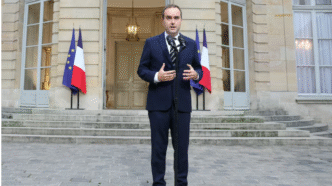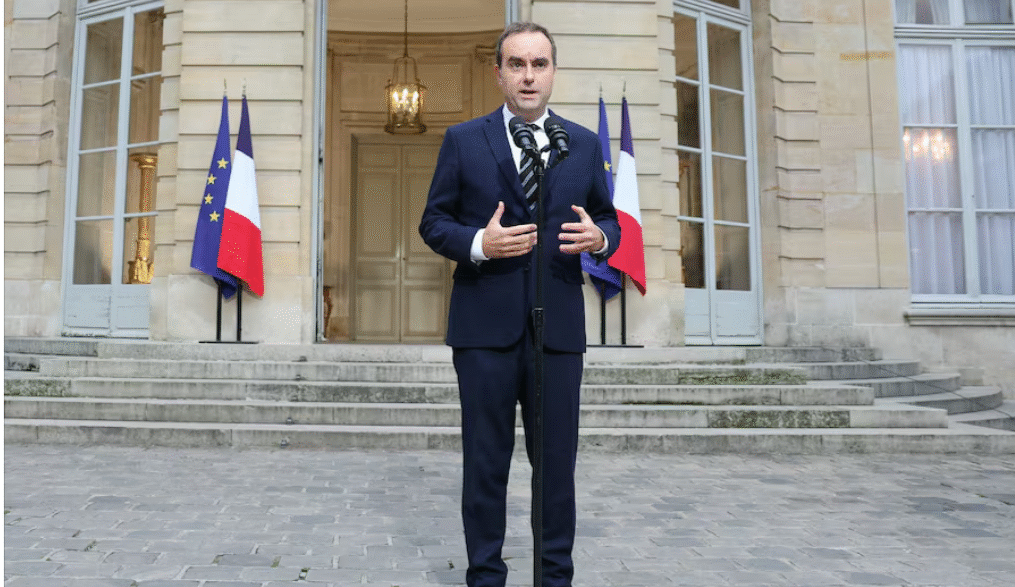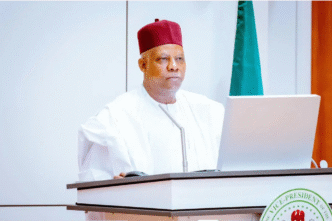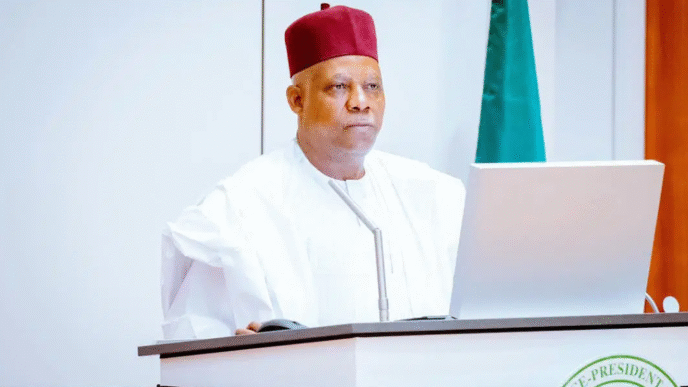Paris, France – October 6, 2025 – In a dramatic twist that has thrown France deeper into political turmoil, Prime Minister Sébastien Lecornu has resigned just hours after presenting his new cabinet, marking one of the shortest-lived governments in the history of the Fifth Republic. His abrupt exit has not only unsettled France’s political establishment but also rattled financial markets and reignited debates about the fragility of President Emmanuel Macron’s leadership in the twilight of his presidency.
A Shocking Turn of Events
Lecornu, who had been appointed less than a month ago to succeed François Bayrou after his government collapsed in a no-confidence vote, announced his cabinet on Sunday evening. The 18-member government, unveiled with hopes of stabilising France’s fractured political landscape, was meant to project continuity and strength. Instead, it immediately sparked widespread criticism across the political spectrum.
By Monday morning, facing mounting opposition, Lecornu tendered his resignation to President Macron at the Élysée Palace. In a swift statement, the presidency confirmed that Macron had accepted the resignation, setting off a scramble to decide France’s next political steps.
The resignation came barely 14 hours after the announcement of the new ministers, making Lecornu’s tenure one of the shortest for any French prime minister.
Why Did Lecornu Resign?
Several key factors contributed to the rapid implosion of Lecornu’s premiership:
1. Backlash Over Cabinet Composition
The newly announced government included many holdovers from previous administrations, signalling continuity rather than the renewal that many opposition voices and sections of the public had demanded. Critics described the cabinet as unbalanced, leaning too far to the right, while others argued that it failed to inspire confidence amid rising economic and social challenges.
2. Parliamentary Deadlock
France’s National Assembly remains deeply divided after months of political upheaval. No single coalition controls a majority, and Lecornu faced immediate threats of no-confidence motions from both the left and right. Without guaranteed parliamentary support, governing would have been nearly impossible.
3. Internal Party Pressures
Even within Macron’s centrist bloc, discontent brewed over Lecornu’s appointments and strategy. Some lawmakers expressed frustration at the lack of consultation in ministerial selections, while others feared a backlash from their constituencies.
4. Economic and Social Unrest
France is grappling with inflation, debt concerns, and persistent protests over pension reforms. Lecornu had vowed to pursue consensus and dialogue, rather than rely on controversial constitutional manoeuvres to push legislation through. That position, while principled, exposed him to criticism from both allies and opponents who doubted his ability to push through urgent reforms.
Political Shockwaves Across France
The resignation has created fresh uncertainty in Paris, with opposition parties seizing on the collapse to call for new elections.
- The far-right National Rally declared that the resignation was proof Macron’s presidency had lost credibility and demanded the dissolution of the National Assembly.
- Leaders of the left-wing alliance known as the New Popular Front renewed their calls for a government of change, accusing Macron of clinging to a collapsing system.
- Within Macron’s centrist ranks, lawmakers expressed disappointment but urged unity in navigating the next steps.
Observers note that Macron is now in an extremely precarious position. With less than two years left in his presidency, he faces the daunting challenge of either appointing yet another prime minister who may not command parliamentary support or dissolving parliament and calling fresh elections, a risky gamble that could strengthen the opposition.
Financial Markets React
The shock resignation triggered immediate turbulence in France’s financial markets. The CAC 40 index fell sharply in Monday trading, led by declines in the banking and energy sectors. The euro also dipped against the U.S. dollar, reflecting investor concerns about prolonged political instability in one of the eurozone’s largest economies.
Analysts warn that prolonged uncertainty could dampen investor confidence at a time when France is already struggling to manage public debt and economic stagnation.
Historical Context
Lecornu’s resignation just hours after presenting his government places him among the shortest-serving prime ministers in modern French history. His downfall follows the collapse of François Bayrou’s government, which itself failed after losing a no-confidence vote in the National Assembly.
This revolving door of leadership underscores the unprecedented instability gripping France since the 2024 snap parliamentary elections. Those elections fractured the political landscape, leaving Macron’s bloc weakened and forcing him to navigate a fragmented parliament where compromise has proven elusive.
Since the creation of the Fifth Republic in 1958, French prime ministers have typically held office for years. Lecornu’s 27-day tenure, capped by a resignation mere hours after unveiling his cabinet, stands as a stark symbol of the current political volatility.
What Comes Next?
President Macron now faces a limited set of options:
- Appointing a New Prime Minister
Macron could attempt to appoint another prime minister capable of building a broader coalition. However, given the hostile parliamentary arithmetic, this option risks yet another collapse. - Dissolving Parliament
The President may dissolve the National Assembly and call fresh legislative elections. While this could reset the political balance, it also carries significant risks—particularly if the far-right National Rally emerges stronger. - Caretaker Government
Macron could appoint an interim or caretaker government to oversee day-to-day operations until a clearer political path emerges.
For now, the Élysée has yet to indicate which option the President will pursue, but pressure is building for decisive action to avoid prolonged paralysis.
International Implications
France’s political crisis carries implications beyond its borders. As a leading member of the European Union and a permanent member of the United Nations Security Council, instability in Paris reverberates internationally.
European leaders have voiced concern about the effect of France’s political instability on EU decision-making, particularly on matters of economic governance, energy policy, and collective defence. Allies are watching closely to see whether Macron can stabilise his government or whether France’s political paralysis will deepen.
The Bigger Picture
The resignation of Sébastien Lecornu reflects more than just a failed cabinet—it underscores the growing disconnect between France’s political elite and its restless population. Discontent over economic inequality, pension reforms, and immigration policy has fuelled protests, weakened public trust, and fragmented the electorate.
Macron, now in his second and final term, is struggling to maintain control in a political environment where compromise has become increasingly difficult. The collapse of Lecornu’s government highlights the limits of presidential power when confronted with a hostile and fractured parliament.
Conclusion
Sébastien Lecornu’s resignation, barely hours after presenting his cabinet, has plunged France into an even deeper political crisis. It has left the government rudderless, shaken investor confidence, and exposed the fragility of President Emmanuel Macron’s leadership.
With the National Assembly in deadlock, the opposition emboldened, and the public demanding change, the next steps will be critical in determining France’s political trajectory. Macron’s choices—whether to appoint yet another prime minister, call fresh elections, or attempt to patch together a caretaker administration—will shape not only the remainder of his presidency but also the future of French democracy.
As France faces mounting economic challenges and international pressures, the abrupt fall of its latest prime minister serves as a stark reminder of the turbulent political era the country has entered.














